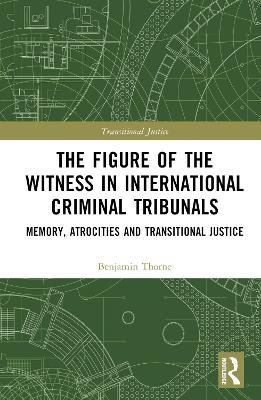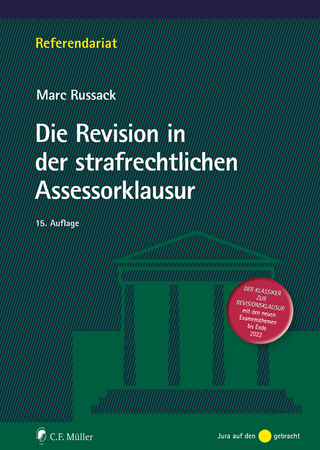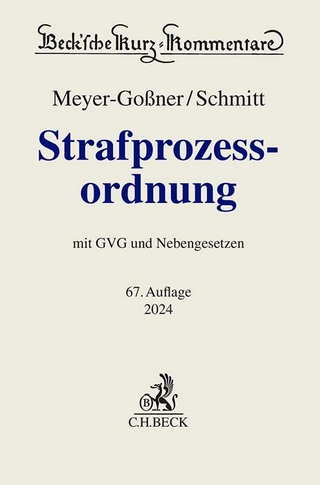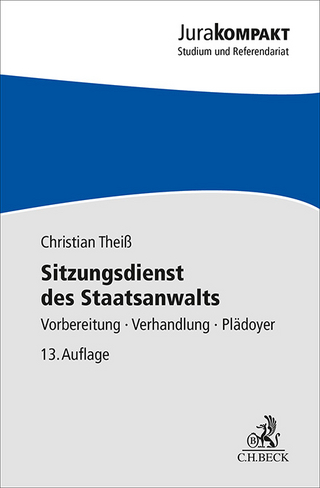
The Figure of the Witness in International Criminal Tribunals
Routledge (Verlag)
978-1-032-05280-9 (ISBN)
Filling an important gap within transitional justice scholarship, this conceptually led and empirically grounded interdisciplinary study takes the International Criminal Tribunal for Rwanda (ICTR) as a case study. It asks: How do legal witnesses of human rights violations contribute to memory production in transitional post-conflict societies? Witnessing at tribunals entails individuals externalising memories of violations. This is commonly construed within the transitional justice legal scholarship as an opportunity for individuals to ensure their memories are entered into an historical record. Yet this predominant understanding of witness testimony fails to comprehend the nature of memory. Memory construction entails fragments of individual and collective memories within a contestable and contingent framing of the past. Accordingly, the book challenges the claim that international criminal courts and tribunals are able to produce a collective memory of atrocities; as it maintains that witnessing must be understood as a contingent and multi-layered discursive process.
Contributing to the specific analysis of witnessing and memory, but also to the broader field of transitional justice, this book will appeal to scholars and practitioners in these areas, as well as others in legal theory, global criminology, memory studies, international relations, and international human rights.
Benjamin Thorne is a Lecturer in Law at the University of Kent, and he completed his ESRC funded PhD in Law at the University of Sussex in 2020. Benjamin is an interdisciplinary scholar with main themes of interest within socio-legal studies, transitional justice, and critical theory. One area of focus for him is the connections between memory, transitional justice, and legal atrocity archives. More generally, Benjamin is interested in questions around visuals, sounds, as well as the broader sensory field, in how people experience crime, law and justice, particular in the international context. Currently, Benjamin is conducting collaborative research exploring the role visuals arts can have as a form of justice for victims of sexual violence committed during conflict. Furthermore, he is working on research through artistic expression exploring themes of memory, human senses and legal archive material and which has been published with the Law and Humanities Journal (2021). Previously, Benjamin was a Visiting Researcher at University of Oxford Centre for Socio-Legal Studies.
Introduction Chapter
Introduction
Defining Transitional Justice
Context
Research Data and Method
Structuring the Argument
Chapter One: Memory, Witnesses and International Criminal Institutions
Introduction
Origins of the Practice of Transitional Justice: Nuremberg and the Exceptional use of International Law
The symbolic representation of Nuremberg and Human Rights
Eichmann: Law and the Need for Witnesses to Remember
A Discourse of Transitional Justice Scholarship: From International Justice to Local Justice Via International Norms
International Criminal Tribunals and Courts: Witnesses and Testimonial Evidence
International Criminal Tribunal for Rwanda and Defining Legal Witnesses
Conclusion - International Legal Institutions: Spaces of Memory Construction
Chapter Two: Conceptualising the way Legal Witnesses Remember Mass Human Rights Violations
Introduction
Law and the ‘Grey Zone’ of Witnessing
Bearing Witness
The Grey Zone: Law, Ethics and Legal Witnesses
The ‘Muselmann’: the lacuna of law and justice or legal witnessing as ‘Judgment’
Theoretical lens: conceptualising legal witnessing
Memory: Individual and Collective Components
Manipulated Memory
From Agamben and Ricoeur to an original conceptual framework: analysing the way legal witnesses remember at the ICTR
Discourse and Legal Archives
i The ICTR’s ‘Black Box’: Opening up the archives
The legal production of knowledge
Bringing together the theory, ‘Black Box’ and the analysis
Conclusion
Chapter Three: The Discursive Battleground of Legal Witnessing, Or, The Active Witness and Their ‘Right to Truth’
Introduction
Nowhere and Everywhere: The Discursive Reach of the Witness at the ICTR
‘Bears in a China Closet’: The discursivity of investigations and indictments
The Right to Truth: Who’s Speaking?
Mass Atrocities and the Right to Truth
Victims-Witnesses
The discursivity of the ‘witness’ vs the right to truth: universality, agency and collective legal stories
Conclusion
Chapter Four: Memories of Violence and the Limitations of Law
Introduction
Law, Genocide and Legal Memories of Mass Violence
The ICTR and the crime of Genocide
Genocidal violence: Layers and fluidity of events, actions and agents
Beyond Law: The Plurality of Violent Memories
Discursive restrictions of witness memories
The ‘Grey Zone’ of legal witnessing
The plurality of memory
Conclusion
Chapter Five: Critiquing Liberal Legality and Collective Memory
Introduction
Legal Actors as Memory Producers
Testifying in the ‘Interests of Justice’
The discursive practices of Disclosure
Producing a Legal Memory of Rape and Sexual Violence
Liberal Legality and Collective Memory: A Critique
A critique of advocacy for a legal collective memory of atrocities
Plural vs Collective memory
A Conceptual Alternative
Conclusion
Chapter Six: Fragments of Legal Memories
Introduction
Legal Archives: Plurality, Self and ‘Others’
Plural Fragments of Memory
Intergenerational Transmission of Legal Memories: Words and Images
Legal Memory: The Empirical Potential and Challenges of the ICTR Archive
Conclusion
Epilogue - An Atrocity Archive: Sensory Expression of Past-Present-Future
Conclusion
Introduction
Why Conceptual Insights Matter
Contribution to Knowledge
Framing the Books Contributions
Future Research Directions
Bibliography
Appendix
Appendix One: Case Studies
Appendix Two: List of Data
| Erscheinungsdatum | 26.09.2022 |
|---|---|
| Reihe/Serie | Transitional Justice |
| Verlagsort | London |
| Sprache | englisch |
| Maße | 156 x 234 mm |
| Gewicht | 820 g |
| Themenwelt | Recht / Steuern ► Allgemeines / Lexika |
| Recht / Steuern ► EU / Internationales Recht | |
| Recht / Steuern ► Strafrecht ► Strafverfahrensrecht | |
| Sozialwissenschaften ► Politik / Verwaltung | |
| ISBN-10 | 1-032-05280-5 / 1032052805 |
| ISBN-13 | 978-1-032-05280-9 / 9781032052809 |
| Zustand | Neuware |
| Haben Sie eine Frage zum Produkt? |
aus dem Bereich


